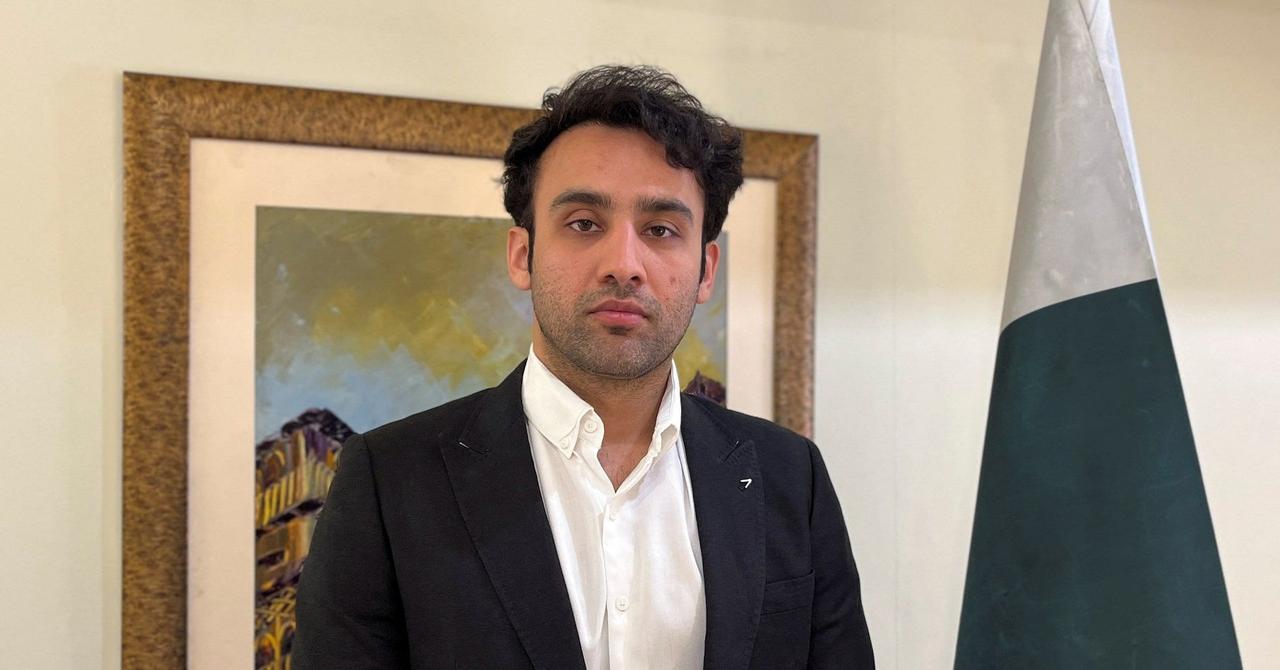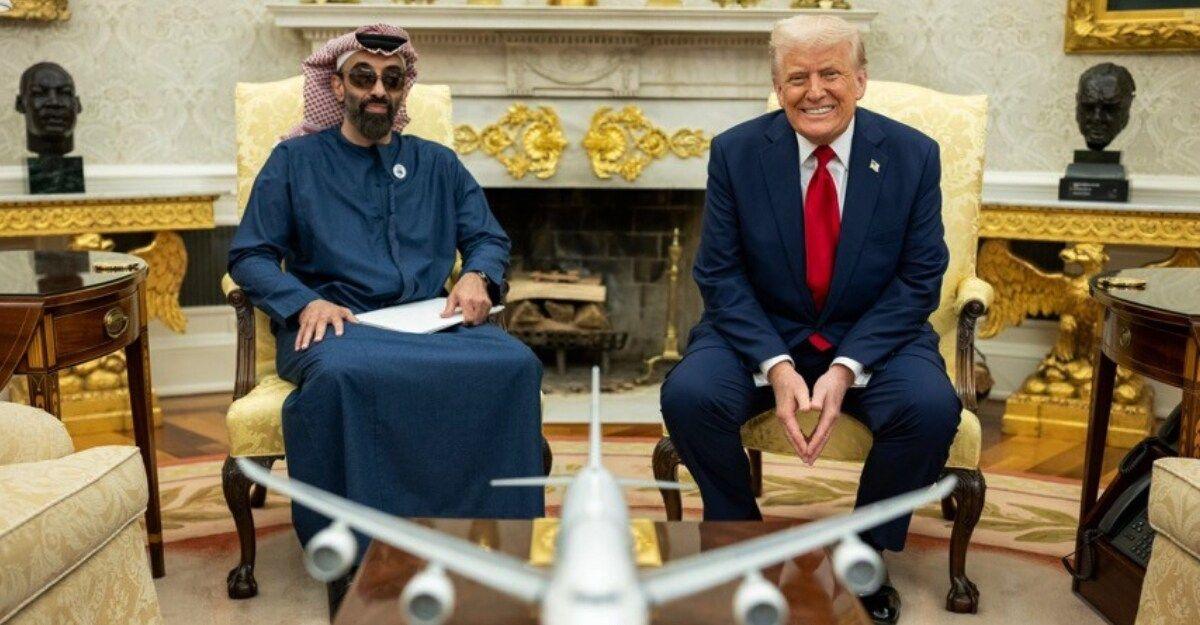Pakistan Appoints Blockchain and Crypto Advisor, Embraces Digital Asset Sector
2 Sources
2 Sources
[1]
Pakistan Appoints World Liberty Financial Advisor to Key Government Role on Crypto - Decrypt
The Pakistani government has appointed a special assistant to the prime minister on blockchain and cryptocurrency, mirroring the U.S. approach to state involvement in the digital asset sector, according to local media reports on Monday The newly created role has been given to Bilal Bin Saqib, who is also a chief advisor to the finance minister and the CEO of the Pakistan Crypto Council. A graduate of the London School of Economics, Bin Saqib was featured in Forbes' 30 Under 30 and received an MBE from King Charles III for his work in social impact. The appointment comes as Pakistan ramps up efforts to position itself as a crypto-friendly economy. This week, the government announced plans to allocate 2,000 megawatts of surplus electricity to bitcoin mining as part of a broader plan to support mining and AI data centers. The initiative, driven by the Pakistan Crypto Council, is aimed at generating revenue, creating high-tech jobs, and attracting foreign investment. Former Binance CEO Changpeng Zhao joined the council as an advisor in early April after serving a four-month U.S. prison sentence for violating anti-money laundering laws. But as in the U.S., Pakistan's crypto embrace has raised concerns. The push follows a sharp decline in foreign direct investment, down 45% in February compared to a year earlier, according to English-language outlet Pakistan Today. In January, Pakistan hired a U.S. lobbyist to facilitate meetings in Washington. During a visit, the country's interior minister reportedly appealed for more U.S. investment, according to The Wall Street Journal. Shortly after, it began to forge ties with Trump-linked crypto project World Liberty Financial. Bin Saqib became an advisor to the project in April, shortly after a visit to Pakistan by co-founder Zach Witkoff. During the visit, Witkoff and his co-founders signed an MOU with the ministry that opens up the possibility of World Liberty's stablecoin being used in the country for trade and remittances. WLF has been contacted for comment.
[2]
Pakistan appoints special assistant to PM on blockchain and crypto
Pakistan Prime Minister Shehbaz Sharif appointed Pakistan Crypto Council CEO Bilal Bin Saqib as his special assistant on blockchain and crypto. Saqib's appointment takes effect immediately under Rule 4(6) of the Rules of Business, 1973. He has been granted the status of minister of state and will serve without salary or official benefits, according to a May 26 report in the English-language local news outlet, Pakistan Observer. The move follows a series of government initiatives aimed at strengthening Pakistan's presence in the digital asset space. Just one day prior, Pakistan allocated 2,000 megawatts of surplus electricity exclusively for Bitcoin mining and artificial intelligence centers. In mid-May, Pakistan's Ministry of Finance also endorsed the creation of a dedicated body to regulate the country's blockchain-based financial infrastructure. The Pakistan Digital Assets Authority (PDAA) will serve as a regulatory body to oversee licensing, regulate exchanges, custodians, wallets, tokenized platforms, stablecoins and decentralized finance applications. Related: Pakistan eyes crypto legal framework to boost foreign investment Saqib is a graduate of the London School of Economics in the United Kingdom and received the title of Member of the Most Excellent Order of the British Empire from King Charles III. He currently leads the Pakistan Crypto Council, where he appointed former Binance CEO Changpeng "CZ" Zhao as an adviser. He was also named in the Forbes 30 under 30 list. As a special assistant to the prime minister, Saqib will be tasked with drafting Financial Action Task Force (FATF)-compliant crypto regulations, launching state-backed Bitcoin (BTC) mining projects, and overseeing blockchain integration in governance, land records and finance. He will not receive a salary, perks or privileges, according to Pakistan Observer. Related: Pakistan moves to regulate cryptocurrency, CBDCs as legal tender Pakistan is diving headfirst into the crypto industry. In late April, the Donald Trump-backed World Liberty Financial has signed a Letter of Intent with the Pakistan Crypto Council to accelerate crypto adoption in the country, one of the industry's fastest-growing markets. Pakistani regulators recently proposed a regulatory framework for digital assets that is compliance-focused and in line with rules laid out by the FATF. Pakistan's Federal Investigation Agency (FIA) Director Sumera Azam described the framework as a "paradigm shift in how Pakistan views digital finance." "The policy proposal seeks to strike a historic balance between technological advancement and national security imperatives," Azam said in April. Magazine: AI cures blindness, 'good' propaganda bots, OpenAI doomsday bunker: AI Eye
Share
Share
Copy Link
Pakistan's government takes a significant step towards crypto adoption by appointing a special assistant to the prime minister on blockchain and cryptocurrency, while also allocating resources for Bitcoin mining and AI centers.
Pakistan's Strategic Move into Blockchain and Cryptocurrency
In a significant development for the digital asset sector, the Pakistani government has appointed Bilal Bin Saqib as the special assistant to the prime minister on blockchain and cryptocurrency. This move mirrors the United States' approach to state involvement in the digital asset sector and signals Pakistan's intention to position itself as a crypto-friendly economy
1
2
.
Source: Decrypt
The Appointment and Its Implications
Bilal Bin Saqib, a graduate of the London School of Economics and featured in Forbes' 30 Under 30, brings a wealth of experience to this newly created role. As the CEO of the Pakistan Crypto Council and a chief advisor to the finance minister, Bin Saqib is well-positioned to drive Pakistan's crypto initiatives
1
. His appointment, which grants him the status of minister of state, comes into effect immediately under Rule 4(6) of the Rules of Business, 19732
.Government Initiatives Supporting Crypto Adoption
The appointment is part of a broader strategy to embrace the digital asset sector. Key initiatives include:
- Allocation of 2,000 megawatts of surplus electricity for Bitcoin mining and AI data centers
1
2
. - Endorsement of the Pakistan Digital Assets Authority (PDAA) to regulate blockchain-based financial infrastructure
2
. - Drafting of Financial Action Task Force (FATF)-compliant crypto regulations
2
. - Plans for state-backed Bitcoin mining projects and blockchain integration in governance, land records, and finance
2
.
International Collaborations and Investments
Pakistan's crypto push comes amid efforts to attract foreign investment and forge international ties in the sector:
- Former Binance CEO Changpeng Zhao joined the Pakistan Crypto Council as an advisor
1
. - The government hired a U.S. lobbyist to facilitate meetings in Washington, appealing for more U.S. investment
1
. - Pakistan signed a Letter of Intent with World Liberty Financial, a Trump-linked crypto project, to accelerate crypto adoption
1
2
.
Related Stories
Challenges and Concerns
While the government's embrace of crypto presents opportunities, it also raises concerns:
- The push follows a sharp decline in foreign direct investment, down 45% in February compared to the previous year
1
. - The rapid adoption of crypto technologies may pose regulatory challenges, particularly in ensuring compliance with international standards like those set by the FATF
2
.
The Road Ahead
As Pakistan dives headfirst into the crypto industry, the government aims to strike a balance between technological advancement and national security imperatives. The proposed regulatory framework for digital assets focuses on compliance and aligns with FATF rules, marking what Pakistani regulators describe as a "paradigm shift" in the country's approach to digital finance
2
.With these developments, Pakistan is positioning itself as one of the fastest-growing markets in the crypto industry, potentially reshaping its economic landscape and international financial relationships in the coming years.
References
Summarized by
Navi
[1]
[2]
Related Stories
Pakistan Allocates 2,000 MW of Electricity for Bitcoin Mining and AI Data Centers
25 May 2025•Business and Economy

Pakistan to Harness Surplus Electricity for Bitcoin Mining and AI Data Centers
10 Apr 2025•Business and Economy

UAE and US Officials Discuss Crypto and AI Collaboration, Highlighting Global Tech Diplomacy
22 Mar 2025•Policy and Regulation

Recent Highlights
1
ByteDance's Seedance 2.0 AI video generator triggers copyright infringement battle with Hollywood
Policy and Regulation

2
Demis Hassabis predicts AGI in 5-8 years, sees new golden era transforming medicine and science
Technology

3
Nvidia and Meta forge massive chip deal as computing power demands reshape AI infrastructure
Technology





